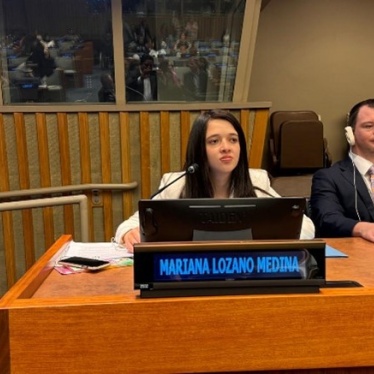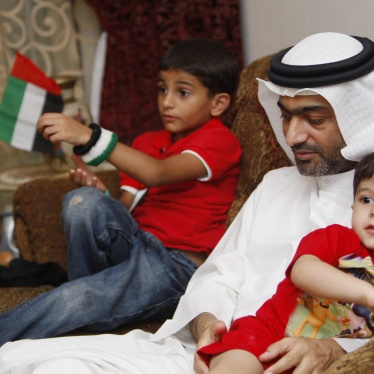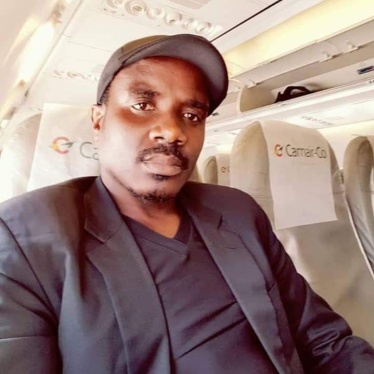Human rights organizations, like any other, have to wrestle with the challenge of setting priorities with limited resources. Choices always have to be made because there are never enough resources to match the problems that we’d like to address.
These choices can be wrenchingly difficult: LGBT issues in Africa or civilian killings in South Sudan? Or, disability rights in Ghana, or prisoners at Guantanamo?
Setting priorities for HRW’s work across 90 countries and a host of specialist areas of work – women, children, business, refugees, disabilities, LGBT and more – is art rather than science. At least partly, that is because we don’t yet do as good a job as we would want to in evaluating the impact of our work. Indeed, few human rights organizations are effective in systematically defining and measuring their impact and learning lessons from what they were able to achieve – or not.
But it’s also because there is a fundamental tension in human rights work. On the one hand, as activists we are motivated to bring about change and impact. Our projects and plans are intensely, even obsessively, focused on identifying what difference we can make: new laws, new institutions, ending abuses and bringing tyrants to justice. And we constantly see real and concrete change arising from our work.
We are also, however, drawn instinctively to the biggest, toughest, and most egregious human rights situations because we want to take on the worst and most abusive human rights violators. This would include situations like the detention camps of North Korea, political prisoners in Uzbekistan, the status of women in Saudi Arabia, the death penalty in the United States, corruption in Angola, the protection of LGBT people in Uganda, ethnic cleansing and massacres in the Central African Republic and so many other seemingly intractable patterns of human rights abuse.
And although we seek to ensure that our work in these areas is strategic and focused on achieving real change, we have to recognize that change may be very slow and incremental; or even non-existent, at least in the short or medium-term.
But even if there is no tangible and effective progress towards real change, such work still matters. An essential element of human rights work is to fulfill the moral imperative of bearing witness, by demonstrating solidarity with local activists and showing principled support for victims of human rights violations, and thereby affirming the universal values of human rights. Sometimes one has to be a voice in the wilderness.
At HRW, for example, we have invested enormous time and resources in the last three years investigating abuses of human rights and the laws of war in Syria by all sides in the conflict. These include the use ofchemical weapons, indiscriminate attacks against civilians, torture on a massive scale, tactics to starve civilians, and sexual violence.
Our researchers have faced great danger in the field, in territory held by both the government and non-state armed groups, and activists on the ground have risked much to provide us with information and images of the conflict. We have produced hundreds of thousands of words in reports, press releases, and opinion pieces. We have analyzed satellite images and produced video and photos. We have spoken in conferences, briefed hundreds of journalists, met dozens of officials, attended meetings, and galvanized online activism.
I am extraordinarily proud of what we have done. But our work and that of others has not stopped the abuses. Despite our best efforts, alongside so many others, these abuses continue; they are arguably as brutal and inhumane, if not more so, than ever. There has been no UN Security Council referral of Syria to the International Criminal Court, nor has an arms embargo been imposed nor is there access to humanitarian assistance for all in need.
Does this mean, however, that HRW should have spent less time and money working on Syria in order to focus on another country or issue where we might have been able to make more of a difference?
I am confident in answering, “no.” Syria is one of the gravest human rights and humanitarian crises of our generation. We have a deep obligation to stand with its victims and to continue to expose both the barbarity of the perpetrators and the moral bankruptcy and ineffectiveness of the international response.
We can hope that, one day, the crimes we have documented will help to bring Syrian President Bashir al-Assad and other perpetrators to justice. It took 15 years of tireless research and advocacy to help ensure that former Liberian President Charles Taylor faced justice in the Special Court for Sierra Leone. Similar efforts led to the former Chadian dictator, Hissene Habre, being brought before a court to face charges of crimes against humanity, torture and war crimes.
A recent article on open Global Rights argued that human rights NGOs should base their priorities on the likelihood of success, rather than mere hope. But to do so would intensify the criticism that we already over-focus on those countries that are regularly featured in the western media, or that have open societies, and therefore offer greater potential for change.
Of course, we are always focused on achieving real, concrete change even when we take up the most difficult situations. It would be a real step backward, however, to discount the intrinsic value of truth-telling and to ignore the imperative of solidarity. As one of my colleagues wrote: “I couldn't begin to count the number of times I've interviewed someone who shared some unspeakable horror with us and then expressed a very clear-eyed understanding that they would never obtain any kind of redress but took solace in knowing that the atrocity they suffered would become known to the outside world.”








